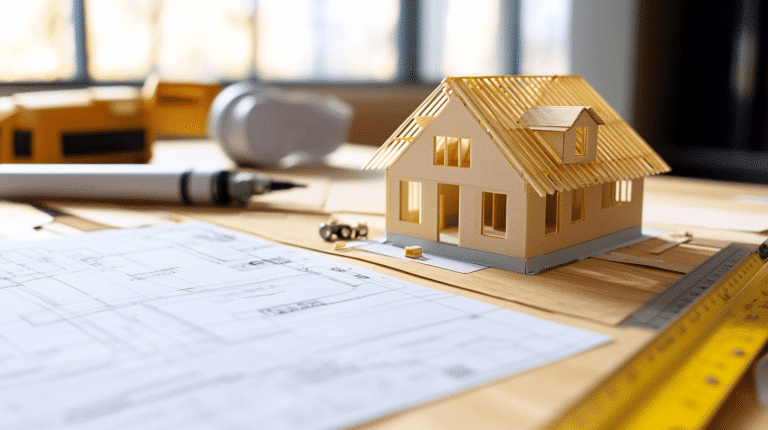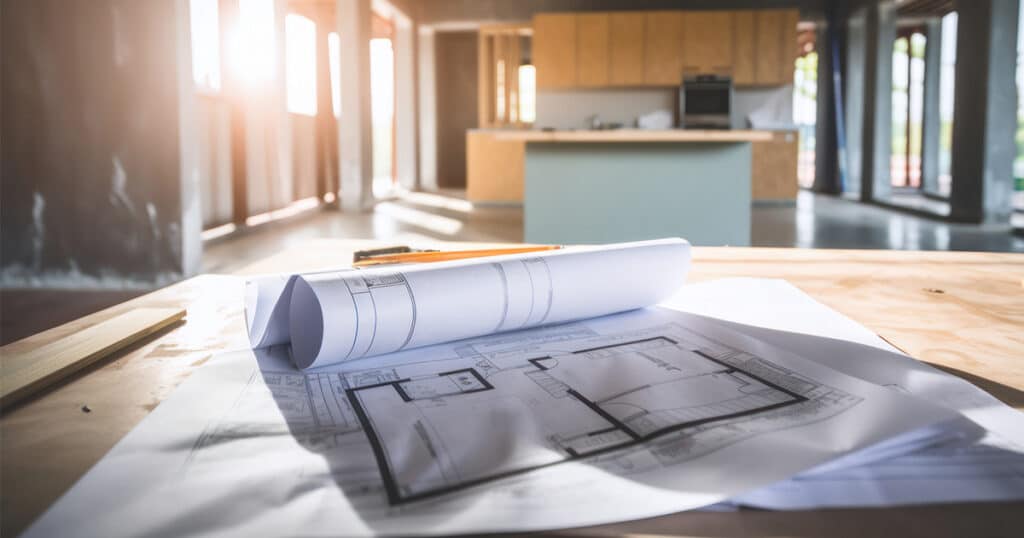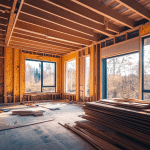Renovating your home is an exciting journey, full of possibilities to transform your living space into something truly special. Whether you’re expanding to accommodate a growing family or simply upgrading your kitchen, a successful renovation requires careful planning and preparation.
One of the most critical aspects of this preparation is ensuring you have all the necessary documents in order. These documents not only help keep your project on track but also protect your investment and ensure that everything is done according to local regulations.
Essential Documents for a Smooth Renovation
Before you begin tearing down walls or installing new flooring, it’s crucial to have certain documents in place. These essential papers will help you navigate the renovation process legally and efficiently, ensuring that your project is completed on time, within budget, and without any unwanted surprises.
Building Permits
A building permit is a formal approval from your local government that allows you to carry out specific renovation activities on your property. These permits ensure that your project complies with local building codes and safety regulations, which are in place to protect you, your family, and your community.
How to Obtain Building Permits
The process of obtaining a building permit can vary depending on where you live, but generally, it involves submitting an application to your local building department. You’ll need to provide detailed plans of your renovation, including blueprints and specifications.
It’s also a good idea to consult with your contractor or architect, as they can often assist with the permit application process. Be sure to allow ample time for the permit to be approved before your project begins, as delays in obtaining permits can lead to costly setbacks.
Contractor’s License and Insurance
Hiring a licensed contractor is one of the most important steps you can take to ensure your renovation goes smoothly. A licensed contractor has met the necessary qualifications and adheres to local building standards, which can provide peace of mind that the work will be done correctly and safely.
Additionally, working with a licensed contractor means you’re protected if something goes wrong, as they are legally accountable for their work.
Before hiring a contractor, it’s vital to verify their history to ensure they have a clean record and valid licenses. This should include general liability insurance to cover any damage that may occur during the renovation, as well as workers’ compensation insurance to protect you in case a worker is injured on your property. Ask to see copies of these insurance policies, and make sure they are current before any work begins.
Written Contracts
A written contract is your primary safeguard in a home renovation project. It should clearly define the scope of work—what exactly is being done, how long it will take, and what materials will be used. This document sets expectations and provides a reference point if there are any disputes down the line.
Beyond the scope of work, your contract should include terms and conditions that cover payment schedules, deadlines, and how changes to the project will be handled. It’s also wise to include clauses that address potential delays, the process for resolving disputes, and what happens if the contractor fails to meet the agreed-upon standards. A well-drafted contract protects both you and the contractor and helps ensure that the project progresses smoothly.
Design and Planning Documents
Professional blueprints or design plans are essential for any renovation project, especially if you’re making structural changes. These plans provide a detailed visual representation of the finished project and ensure that everyone—from the contractor to the inspectors—understands what the final result should look like.
Architectural plans are often required when applying for permits, and they serve as a vital reference throughout the construction process.
In addition to your design plans, it’s important to have detailed material specifications. This document should list all the materials, fixtures, and finishes to be used in your renovation, from the type of flooring to the color of paint. By specifying these details upfront, you can avoid misunderstandings and ensure that the finished project matches your vision.
Additional Documents to Consider
While the above documents are essential for any renovation, there are a few additional documents that can further safeguard your project. These documents help manage your budget, protect your home, and ensure you’re prepared for any eventuality.
Budget and Financing Agreements
Before you start any renovation, it’s crucial to establish a realistic budget that accounts for all aspects of the project, including materials, labor, permits, and any unexpected costs that may arise.
This budget should be detailed and itemized, providing a clear overview of where your money will go. Sticking to a budget can be challenging, but having a detailed financial plan will help you stay on track and avoid overspending.
If you’re financing your renovation through a loan or other financial products, it’s important to have all related documents in order. This includes loan agreements, repayment schedules, and any other financial documents that outline the terms of your financing. Make sure you fully understand the terms of your loan and how it will impact your finances during and after the renovation.
Homeowner’s Insurance
Many homeowners overlook the importance of updating their insurance policy before starting a renovation. However, it’s essential to review your coverage to ensure it adequately protects your home during the renovation process. For example, if you’re adding significant value to your home, you may need to increase your coverage limits to reflect the higher replacement cost.
Check with your insurance provider to understand what aspects of your renovation are covered. Some policies may cover theft of materials or damage to your property during construction, while others may not. Ensure that both your existing home and the new additions are fully protected throughout the renovation process.
Embarking on a home renovation is a significant undertaking, but with the right preparation, it can be an exciting and rewarding experience. By ensuring you have all the necessary documents in place—from permits to contracts to insurance—you can avoid many of the common pitfalls that homeowners face during renovations.
These documents not only protect your investment but also ensure that your project is completed safely, legally, and to your satisfaction. Remember, thorough preparation is the key to a successful renovation, so take the time to gather all your documents before you start, and keep them organized throughout the project.











